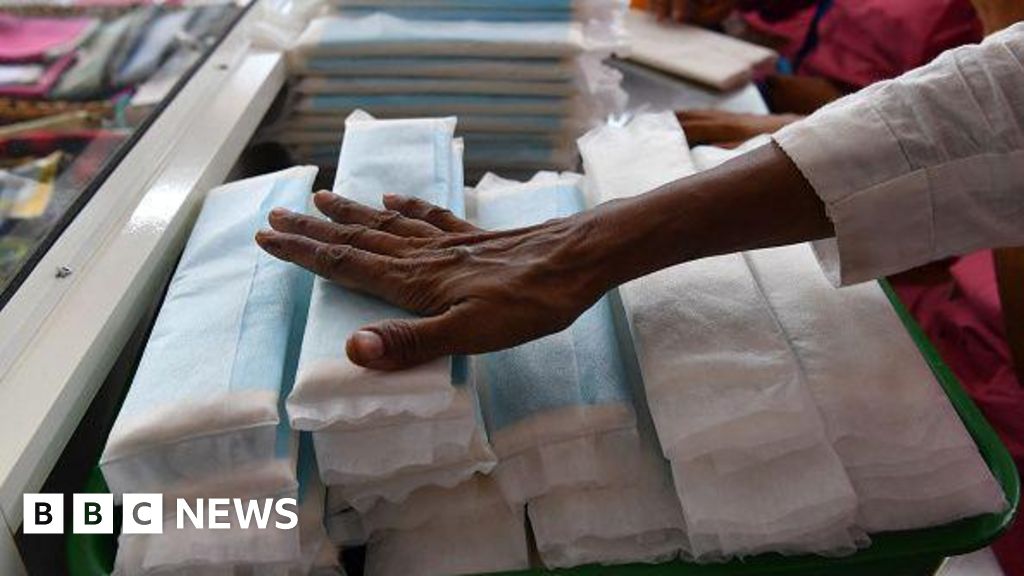
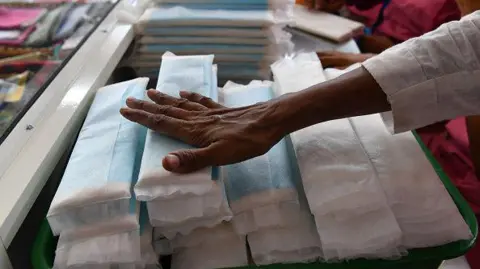 Getty Images
Getty ImagesIndian women on average hit menopause a few years earlier than their counterparts in the West, studies show. A recent paper found that women experiencing premature menopause, particularly in the age group of 30–39 years, is also on the rise. Yet there are few resources to help them deal with it.
“In some studies, the average age of menopause in India is 47 – meaning some women can hit it by 44-45 while others by 50 and this is considered normal,” says Dr Ruma Satwik, a gynaecologist and obstetrician at Delhi’s Sir Gangaram Hospital.
This is several years earlier than, for example, the US where the average age is 51.
Doctors say the earlier menopause is a result of nutritional and environmental circumstances as well as genetic factors.
But in a country where conversation on menstruation still comes with stigma and taboo, menopause awareness is lagging.
Sangeeta, who goes by one name, is overwhelmed every day as she juggles work, household chores and childcare while enduring severe hot flushes, fatigue, insomnia, backache and abdominal pain.
“What’s the point of living like this?” the 43-year-old asks. “Sometimes I feel my pain will end when I die.”
A janitor at Dr Ram Manohar Lohia Hospital, a government-run facility in the capital, Delhi, Ms Sangeeta hit menopause a year ago but did not know until recently that the hospital had a dedicated clinic to address the health concerns it raised.
Hundreds of miles away in the financial capital, Mumbai, Mini Mathur says she felt like she was experiencing “every possible” symptom after she turned 50.
The TV host says she had never had any medical concerns and followed a healthy lifestyle. The onslaught of symptoms reminded her of the advice a friend had given her years ago.
“It’s coming for everyone. Please hit the ground running.”
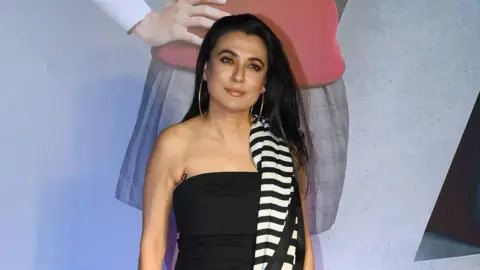 Getty Images
Getty ImagesIndia’s 2011 Census data showed the country had 96 million women above 45 years. By 2026, that number is projected to reach 400 million, says Dr Anju Soni, president of the Indian Menopause Society.
“Indian women live one-third of their life after menopause,” she says.
Women are considered to have hit menopause when they haven’t menstruated for a year. But this is preceded by perimenopause, a phase of gradual decline in reproductive hormones that can last from anywhere between two to 10 years.
The symptoms are wide ranging: from affecting mood, memory, focus, libido to effects on bone, brain, muscle, skin and hair. Depending on its severity, women may find their quality of life decline.
Most symptoms are manageable with supplements, changes in diet, exercise and, if necessary, hormone replacement therapy, doctors say. But there are no tests to determine the condition and they usually rely on eliminating other causes for the symptoms.
Doctors say menopause and perimenopause are under-researched across the world with very little taught about it in medical school.
This can make the process of getting a diagnosis quite frustrating for women, Dr Satwik says.
Ms Mathur says it took visits to several healthcare centres across the country and abroad over the past two years before she received the care she needed.
She was stunned to find that a lot of her symptoms – which included brain fog, low mood, joint pain and anxiety – became “vastly better” when she began using progesterone cream topically.
“I had to go to Austria to find a doctor who wouldn’t negate my symptoms and feelings and say ‘sabko hota hai [it happens to everyone]’.”
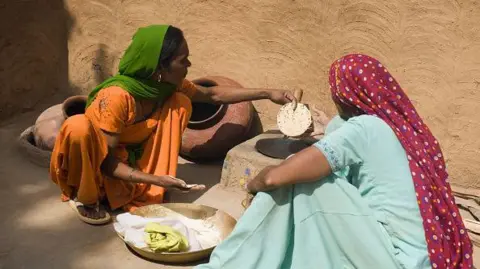 Getty Images
Getty ImagesThe refrain is all too familiar for 60-year-old activist Atul Sharma who was so worried about the changes menopause brought in her mood and sex drive that she hid the condition from her husband for nearly six years.
Ms Sharma, who works with women in rural areas on health and economic empowerment in northern Uttar Pradesh state, found there was barely any provision for menopausal women at rural government clinics. Primary healthcare workers who wanted to help did not have any specialised training.
“Even the nurse who comes here says, ‘Ab iske liye bhi davai mangogi [now you will seek medicine for this also]? Just bear it with. It happens to every woman’.”
In 2022-24, Dr Satwik surveyed over 370 women between the ages of 40 and 60 on their symptoms and its severity.
“About 20% experienced nothing at all. The rest experienced one or more symptoms mildly while 15-20% were experiencing it to a severe degree.”
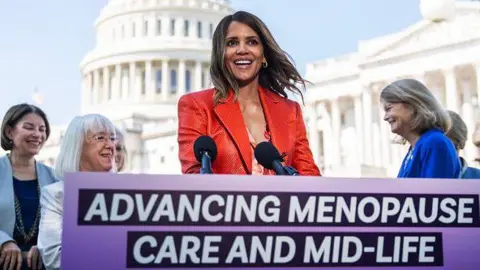 Getty Images
Getty ImagesWhile information within India remains scarce, many women say they are turning to social media and that online resources are often more illuminating than conversations with their doctors.
Many follow American specialists like Dr Mary Claire Haver who shares latest research on social media and celebrities like Hollywood actresses Naomi Watts and Halle Berry who have been promoting the documentary The M Factor: Shredding the Silence on Menopause. Watts is herself writing a book on menopause while Berry is pushing for new legislation to promote its research, training and education.
Ms Mathur says she feels privileged that she was able to get treatment. “How are women who are bringing up families, kids, going to work, travelling in packed local trains dealing with it?
“We are not up to date with the West,” she says. “We don’t have enough brands of oestrogen patches and progesterone creams that we need in India.”
She’s now studying a course in the US, certified by the National Board of Health and Wellness Coaches, hoping to eventually bridge the gap between information, resources and access to specialists for women from all kinds of backgrounds in India.
“The cost of this treatment is out of reach for many poor women in India,” Ms Sharma says. Ms Sangeeta says she is resigned to living with pain.
Increased awareness has to come from the medical fraternity, says Dr Satwik, adding that there need to be as many talks on menopause or perimenopause as there are on fertility and adolescent health.
Dr Soni says the government already has a network of healthcare workers in rural and remote areas.
“They already give supplements and provide health care services to pregnant women. Now extend that to menopausal women.”
Follow BBC News India on Instagram, YouTube, Twitter and Facebook.

